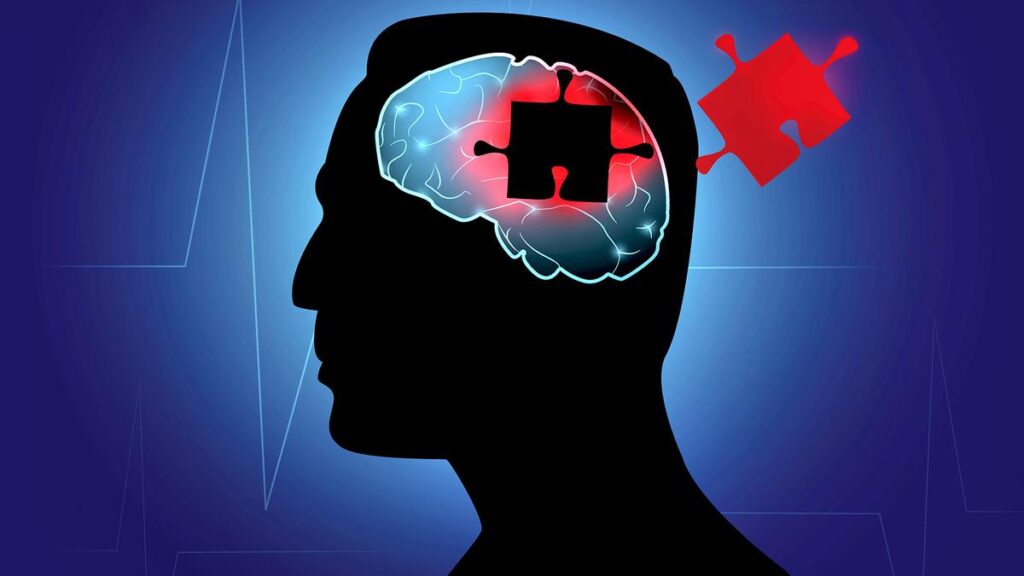970x125
Memory loss is often associated with conditions such as Alzheimer’s disease or other irreversible dementias. However, a frequently overlooked but potentially reversible condition –pseudodementia — can cause similar cognitive deficits. Pseudodementia occurs when depression or other mental health disorders lead to significant impairments in memory, concentration and other cognitive functions that closely resemble dementia.
970x125
Understanding pseudodementia
Pseudodementia is most frequently associated with major depressive disorder.
Typically, it presents as cognitive dysfunction, such as forgetfulness, inability to focus, slowing of thought processing, and indecision. Whereas degenerative dementias are usually characterised by a global and profound inability to understand one’s cognitive decline, and patients suffering from pseudodementia often have an acute awareness of their cognitive deficits and can show in their demeanour a certain degree of frustration, or even get upset, specifically related to their inability to think.
Pseudodementia can arise from several life situations, such as life stressors, chronic illness, or social isolation and can affect adults and in rare cases, younger individuals.
Pseudodementia versus dementia
Although some symptoms may be similar to dementia, several identifying features help differentiate pseudodementia. The onset and progression are usually observable over a period of weeks to months, whereas dementia develops slowly over years.
Patients with pseudodementia are often aware of their symptoms and can be bothered by them, while people with dementia may not demonstrate such awareness.
Cognitive evaluation may also differ — individuals with pseudodementia may show variability in performance or give up on difficult tasks sooner than dementia patients, who continue to struggle despite effort.
Importantly, once the underlying depression is treated, cognitive abilities can often improve significantly, a feature not seen in neurodegenerative dementias.

Evaluation and diagnosis
Getting an accurate diagnosis is critical because pseudodementia is treatable. The diagnostic process typically involves obtaining a comprehensive history from both the patient and an informant, often a family member, to establish the time course of symptom onset.
Cognitive assessments such as the Mini-Mental State Examination (MMSE) and the Montreal Cognitive Assessment (MoCA), along with depression screening tools like the Geriatric Depression Scale, are used.
Medical tests are conducted to exclude other reversible conditions that mimic dementia, such as thyroid disease, vitamin B12 deficiency, and anaemia. Brain imaging may also be performed to rule out structural causes of cognitive changes. In some cases, a thorough neuropsychological evaluation is warranted to determine the extent and pattern of cognitive impairment.
Studies have shown that cognitive impairment associated with depression is pervasive but can be effectively treated. This highlights the need for education, both in the public and healthcare systems, for proper identification and treatment.

Management, prognosis and the path to recovery
Management strategy primarily addresses the depression itself, which typically consists of antidepressant drugs, psychotherapy and several lifestyle strategies in the treatment of depression such as exercise, socialisation and good sleep hygiene. Usually, improvement in mood will correlate with improvement in cognition.
However, in this case, time is of the essence. Untreated major depression, can not only prolong cognitive symptoms, but may put the person at risk for later true dementia.
Memory loss is not an inevitable part of ageing, and many conditions like pseudodementia are reversible with proper care. Early identification and treatment of depression are crucial to prevent long-term cognitive decline. Families should seek a full clinical assessment whenever rapid cognitive changes or mood symptoms appear in a loved one. Recovery often involves a combination of medical treatment, mental health support and healthy lifestyle changes, including regular exercise, good sleep, social engagement and proper nutrition.
With timely intervention, cognitive function can improve significantly, offering patients and their families a tangible path to better brain health.
(Dr. Keni Ravish Rajiv is senior consultant, Neurology and Head of Epilepsy Services, Aster Whitefield Hospital, Bengaluru. keniravish.rajiv@asterhospital.in)
Published – August 14, 2025 12:36 pm IST
970x125

